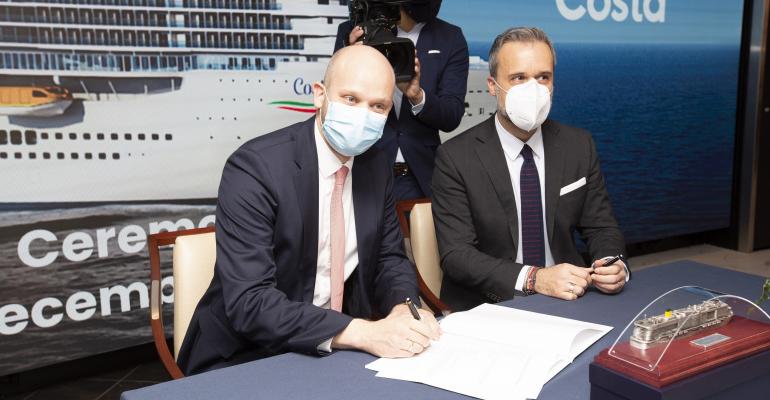Tim Meyer, CEO at the Finnish yard said, ‘With Costa Toscana we are turning a new page at the shipyard. We have been pushing our ship building processes onward and are now seeing the results with this beautiful vessel.'
Costa President Mario Zanetti spoke about the company’s newest ship: ‘Costa Toscana reinforces our commitment to responsible innovation by further contributing to the use of LNG applied to cruise ships, a technology we pioneered.’
Technical evolution
He referenced LNG powered cruise ships as ‘part of a constantly evolving path of ecological transition,’ adding ‘we are working on testing further innovations, such as fuel cells and batteries,’ working towards a net zero emission ship.
In addition to LNG, other innovations designed to reduce environmental impact include daily water requirements met by transforming seawater using desalination plants.
‘The high energy efficiency of the ship has been archieved by our designers and builders through many years of simulation, testing and experience. With each new ship design we are pushing the limits of what is possible,’ stated Meyer.
Tribute to Tuscany
Costa's new flagship is a tribute to Tuscany, the result of an creative project curated by Adam D. Tihany.
Costa Toscana's first cruise will depart from Savona, Italy, on March 5, with a weeklong itinerary visiting Marseille, Barcelona, Valencia, Palermo and Civitavecchia (Rome). Following her debut, the 337mtr long ship with capacity for 6,730 passengers will remain deployed in the Western Mediterranean throughout the year.
Copyright © 2024. All rights reserved. Seatrade, a trading name of Informa Markets (UK) Limited.
Add Seatrade Cruise News to your Google News feed.  |

